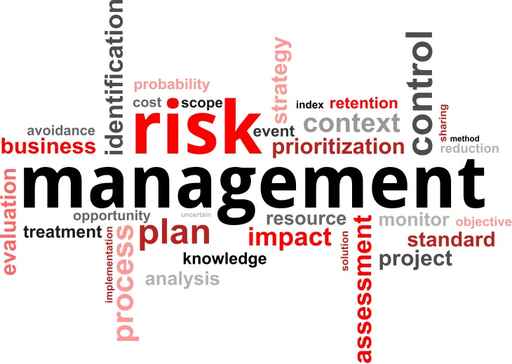Freelancing can offer a lot of benefits and opportunities, but it can be a whole different world, especially if you are used to working as an employee for someone else.
As a freelance business owner, you should sit down with a business adviser (sometimes your accountant may be qualified) and discuss some of the issues you may face.

Whether you are negotiating directly with a client or working through a freelance client firm, there are certain terms and conditions that must be clarified to avoid future risk.
Every business is different, so here are some of the questions you should ask in order to get the proper information for your particular type of work.
1. What Are The Potential Risks?
Your business adviser/accountant will be able to look at the type of work you do and help you identify areas of risk.
Risk factors can vary depending on where you live, what services you provide, or the specific needs or requirements of the client.
2. How Can I Avoid These Risks?
Once you have determined all potential risk factors, the next step is to create a plan that will help you avoid or minimize these situations.
Talk with the client or firm about any risks you have identified, present a solution or back-up plan if necessary, and see if you can resolve the issue.
If it is a major risk or the matter isn’t settled to your satisfaction, then you may want to reconsider working on that particular project.
Your first job is to protect yourself, your reputation, and your freelance business. If you don’t feel good about it, find an alternate plan or turn down the project.
3. Who Owns The Work?
Once you complete a project, can you still claim credit for it?
For example, as a writer, can you use your work in a portfolio or does the client/firm want both ownership and copyright?
Or, as a freelance photographer, do you have the right to use the photos on your photography website? What compensation are you getting in exchange for your claim on a project?
In most cases, it’s money, but you should still make sure that there is a clear understanding between you and your client or the firm you are working with. Ask your business adviser to help you determine what your requirements should be.
4. Who Determines Terms And Conditions?
The client or freelance firm typically decides the terms and conditions. After all, they are paying you to do the job they request, so they are the ones who usually set the rules.
However, if there are certain clauses that you want added to the contract, discuss these with the client or firm and see if you can work out an agreement.
Talk to your business adviser about any terms or conditions that may be essential to your particular type of work. And, keeping risk management in mind, be sure to read the agreement carefully so you know exactly what you are committing to.
5. What Is The Client-Freelancer Relationship?
Clients or client firms may hire on an individual contract basis or a long-term, permanent basis.
The terms, conditions, requirements, and expectations for each type of position may vary.
Read through the details carefully and ask your business adviser for their opinion about which jobs you should take.
As a freelancer, you don’t want to lose your flexibility or freedom, so make sure any long-term/permanent contracts don’t include clauses that limit what is important to you.
6. What About Health And Safety Risks?
As a freelance contractor, you typically don’t fall under the umbrella of the company who hired you.
When it comes to health and safety, find out what protection each client/firm offers and determine what your responsibilities will be.
If you feel health and safety is an issue, discuss your concerns with the client/firm and work out an agreement before you begin a project. You may also want to have proper insurance in place as added protection.
To minimize the risk in this area, be sure to get expert advice on what should (or should not) be included in your contract agreement.
7. How Do I Handle Problems?
How does the client/firm want you to manage any issues that arise? Do you have the freedom to outsource if more skill is needed in a particular area.
If something isn’t working, do they expect you to find a solution? Are they willing to have you put the project on hold while you receive further details or instructions even though it may mean changing the completion date? Communication is the key.
Discuss how problems or issues should be handled so you know that you are meeting the expectations of everyone involved.
8. Who Should I Talk To For Risk Management Advice?
Many accountants are business advisers as well. Once you have created a business plan, you should review it with your accountant/adviser because they can help you identify any risks associated with your type of freelance work.
They should be able to give you information about setting up a business, seeking legal advice, insurance coverage, and any other areas that may need your attention.
Whether you work directly with a client or through a freelance client firm, it is important that you are aware of all the risk factors and how to manage them effectively.
Read my “How To Be Self Employed” e-book
Disclaimer
The advice provided on this website is general information only. It has been prepared without taking into account your objectives, financial situation or needs. It is general advice for freelancers about the questions they should ask a professional advisor. Before acting on this education material for freelancers you should consider the appropriateness of the material, having regard to your own objectives, and seek detailed personal advice from an appropriate professional.















